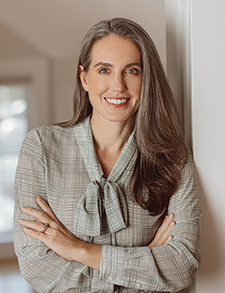 The first few years of practice can be a challenge, often requiring operating at off hours and making yourself very available. The time and effort spent early in practice, which unfortunately often conflicts with responsibilities outside work, typically does pay off in a robust practice with happy patients and referring providers. This is also the time when many are trying to find a research niche, obtain research funding, publish, present, and join local and national committees. Spending this time early on can pay large dividends for your career and enhance your enjoyment of being an otolaryngologist for many years to come.
The first few years of practice can be a challenge, often requiring operating at off hours and making yourself very available. The time and effort spent early in practice, which unfortunately often conflicts with responsibilities outside work, typically does pay off in a robust practice with happy patients and referring providers. This is also the time when many are trying to find a research niche, obtain research funding, publish, present, and join local and national committees. Spending this time early on can pay large dividends for your career and enhance your enjoyment of being an otolaryngologist for many years to come.
Finding balance in the early stages of your career can be even more challenging, especially if you’ve delayed relationships and/or childbearing during training. Thinking back on this time is dizzying. I’m truly grateful for the support that I had from my family and my colleagues, especially when my three kids were little and my husband was still in fellowship.
Along the way, I did a few things that helped to create improved work–life balance, but I wouldn’t exactly call it time balanced. It was more a case of multiple seesaws going up and down, with my husband and I trading off responsibilities at home depending on each other’s career: traveling to meetings, clinical practice, teaching, research, and making efforts to become involved locally and nationally. These seesaws required a constant prioritization of short- and long-term goals. This process will be very different for everyone depending on their personal value system and circumstances. There is no one right way. Sometimes you cannot do it all, especially not all at the same time.
Some of the best advice I’ve received in my career was to protect my administration time from clinical work. I also shifted my schedule a few days a week so that I could sometimes be the one to take my kids to the bus stop in the morning and pick them up after school for activities. This made me feel much more a part of their lives. Even on the days that I wasn’t there, I could understand the stories about their friends, and I knew the other parents.
Life is an evolution, and things that I felt I needed to say “yes” to in the past I now feel I can say “no” to. Learning when to say “no” is a journey, and there’s almost always a lingering feeling of guilt. Here are a few things to consider that may make the choice easier:
• Does it bring you joy or enrich your life, your job, or the lives of those you care about?
• Do you really need it right now for career advancement?
• Can you pass the opportunity along to someone else who will benefit?
• Does the opportunity give you a new skill set or expand your network?
• Does it help those in need?
• Does it empower you to create meaningful change?
• Would it have negative impacts on family or friends?
Good luck on your own journey.